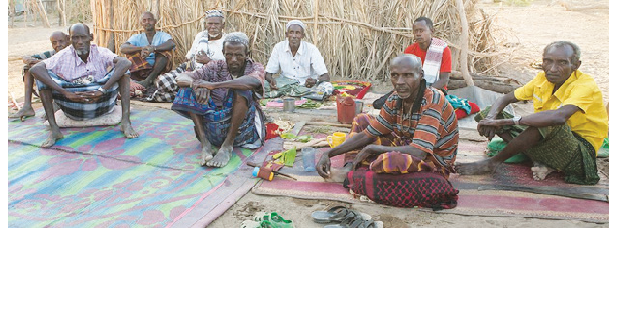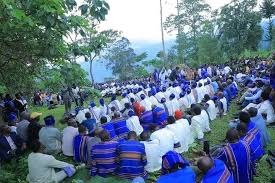
COMPILED BY STAFF REPORTER
In a triangle of low land covering the Awash Valley and the Danakil depression; and in one of the earth’s hottest and driest spots, a segmentary society who knotted together by their own shared values and norms reside.
The afar people, despite their relatively small numbers, are segmentary organized societies who have established strong ties and deep affinity.
The Afar have their own social structure, cultural and traditional values, norms, and way of life. Like many of Ethiopian tribes, these people have also their own deep-seated indigenous conflict resolution mechanisms.
As Getachew Talachew and Shimelis Habtewold wrote in a research paper entitled, ‘Customary Dispute Resolution in Afar Society’, the Afar use the traditional system to resolve their disputes because it is accessible, cheap, provides justice within a relatively short period of time.
The Afar use the traditional dispute resolution mechanism to settle the conflict that arises within the family, between neighbors, within a clan and between clans. This system resolves minor cases like insults within a single day when the accused admits the charge as well as some complicated cases relating to homicide that result in conflict between clans though it takes longer times.
Customary dispute resolution in Afar involves elders and clans leaders to solve minor disputes in the context of Afar traditional law (mada’a). The law is called afare when it concerns disputes within the Afar and adanle for those with outsiders. Islamic laws (Shari’a), is secondary to traditional law. Muslim judges (Kadi) are consulted only for civil affairs like marriage and divorce.
As to the study, far tribal law, the mada’a, varies from tribe to tribe and has complex rules. It is transmitted orally, and certain lineages are highly reputed for their knowledge of the mada’a.
Prior cases set precedent and are integrated into the mada’a. In the event of major litigation or of a previously unheard-of-case or when the various clan leaders have been unable to impose their judgment on the litigants, an appeal is made to the mada’a abba (the father of the law), most of the time a kedo abba chosen and backed by the elders for his knowledge of the mada’a.
When appeal is made to him in unheard-of-case, he gathers an assembly, the malla, which functions as a legal body to pronounce a brand-new judgment, which in turn will be incorporated into the mada’a.
When the mada’a abba is not the kedo abba, and if a dispute is not settled, an assembly presided over by the kedo abba is called, which includes the disputants. A decision made at the court level would not have much chance of being enforced in tribal territory without the consent of the kedo abba, unless force were used, something which risks confrontation.
The traditional institution of maro has jurisdiction over every dispute, with the exception of disputes relating to marriage, divorce and inheritance that are left to the Shari’a court mainly in urban area. The Afar use this institution to resolve criminal case that ranges from insult to homicide and every civil case without taking into account the amount of money the case involves.
The Maro Institution
Maro is literally the session held to resolve conflict under a tree when dispute arises. A makaban (judge), the elders, the disputants, witnesses and observers sit in a circle from which the term maro derives. Depending on the gravity of the case the number of makaban may vary from one to ten. Besides, the makaban may select elders who have a good reputation within the community to assist him. Although many of those elected as elders are aged people, a young person who has good integrity and wins respect of his people may be elected to give such service. Women are excluded from giving such services as makaban and elders.
The makaban continues to serve as a judge indefinitely as long as he does not commit acts that erode the people’s confidence in him. He is expected to be impartial, to have good knowledge of customary law and precedence of traditional/customary decisions throughout his service.
Except disputes like theft of camels and homicide, which come directly to the makaban, all disputes that arise within the sub-clan and between the sub-clans are resolved by the kedo abba of the sub-clans. A disputant dissatisfied by the decision of the kedo abba can appeal to the makaban. The decision of the makaban is final in cases arising within a specific clan.
Cases relating to disputes between different clans are brought to makaban of neutral clans, who resolve the issue with the help of elders selected from different clans.
A clan dissatisfied with the decision of the makaban on such issues may appeal to the Sultan. The decision made by the Sultan is final and no appeal is available against it in the customary dispute resolution system.
Source: https://books.openedition.org/cfee/485
The Ethiopian Herald 27 March 2021





